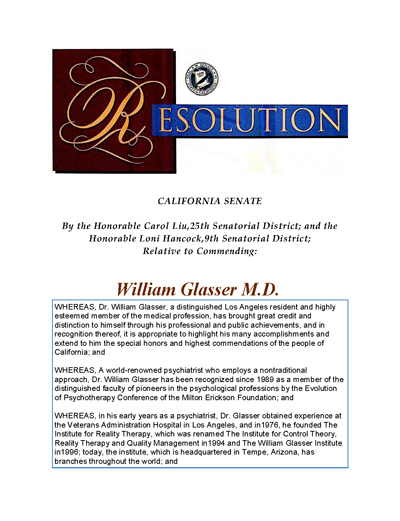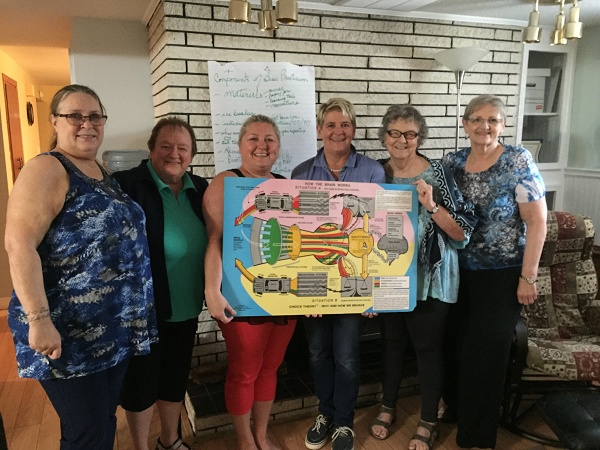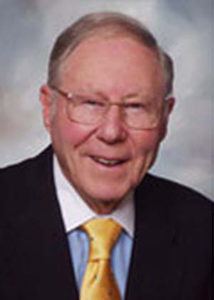by Glasser Canada | General
A nice birthday gift from the California State Senate that was presented on behalf of
Dr. Glasser during the graduation ceremony for those completing the Choice Theory Connection Program at California Institution for Women.
Dr. Glasser is commended for “lifetime of achievements and meritorious service to humanity“!
=
Click to view/download the award as a pdf file
by Glasser Canada | Conference, General
The 2016 R.T. International Conference in Korea, at the Grand Hilton Seoul Korea
7-9 July, 2016
The Theme: Hand in hand for happiness


by Glasser Canada | Choice Theory
The following poem has been around since the 1960’s and it really speaks to Dr. Glasser’s work. All of his books and the training levels focus on helping identify the desire to boss and control in order to have our own expectations met by others. But the boy who liked to draw shows us the results of this popular way of being with others.
The second teacher, perhaps, took the Glasser training or read a book and aptly demonstrates the win/win of creating an environment where the boy is not wrong, is able to think and create his own flower. As the poem illustrates, the boy learns much more than how to draw a flower.
The Little Boy
(Helen Buckley, School Arts Magazine, October 1961)
Once a little boy went to school.
He was quite a little boy
And it was quite a big school.
But when the little boy
Found that he could go to his room
By walking right in from the door outside
He was happy;
And the school did not seem
Quite so big anymore.
One morning
When the little boy had been in school awhile,
The teacher said:
“Today we are going to make a picture.”
“Good!” thought the little boy.
He liked to make all kinds;
Lions and tigers,
Chickens and cows,
Trains and boats;
And he took out his box of crayons
And began to draw.
But the teacher said, “Wait!”
“It is not time to begin!”
And she waited until everyone looked ready.
“Now,” said the teacher,
“We are going to make flowers.”
“Good!” thought the little boy,
He liked to make beautiful ones
With his pink and orange and blue crayons.
But the teacher said “Wait!”
“And I will show you how.”
And it was red, with a green stem.
“There,” said the teacher,
“Now you may begin.”
The little boy looked at his teacher’s flower
Then he looked at his own flower.
He liked his flower better than the teacher’s
But he did not say this.
He just turned his paper over,
And made a flower like the teacher’s.
It was red, with a green stem.
On another day
When the little boy had opened
The door from the outside all by himself,
The teacher said:
“Today we are going to make something with clay.”
“Good!” thought the little boy;
He liked clay.
He could make all kinds of things with clay:
Snakes and snowmen,
Elephants and mice,
Cars and trucks
And he began to pull and pinch
His ball of clay.
But the teacher said, “Wait!”
“It is not time to begin!”
And she waited until everyone looked ready.
“Now,” said the teacher,
“We are going to make a dish.”
“Good!” thought the little boy,
He liked to make dishes.
And he began to make some
That were all shapes and sizes.
But the teacher said “Wait!”
“And I will show you how.”
And she showed everyone how to make
One deep dish.
“There,” said the teacher,
“Now you may begin.”
The little boy looked at the teacher’s dish;
Then he looked at his own.
He liked his better than the teacher’s
But he did not say this.
He just rolled his clay into a big ball again
And made a dish like the teacher’s.
It was a deep dish.
And pretty soon
The little boy learned to wait,
And to watch
And to make things just like the teacher.
And pretty soon
He didn’t make things of his own anymore.
Then it happened
That the little boy and his family
Moved to another house,
In another city,
And the little boy
Had to go to another school.
This school was even bigger
Than the other one.
And there was no door from the outside
Into his room.
He had to go up some big steps
And walk down a long hall
To get to his room.
To get to his room.
And the very first day
He was there,
The teacher said:
“Today we are going to make a picture.”
“Good!” thought the little boy.
And he waited for the teacher
To tell what to do.
But the teacher didn’t say anything.
She just walked around the room.
When she came to the little boy
She asked, “Don’t you want to make a picture?”
“Yes,” said the little boy.
“What are we going to make?”
“I don’t know until you make it,” said the teacher.
“How shall I make it?” asked the little boy.
“Why, anyway you like,” said the teacher.
“And any color?” asked the little boy.
“Any color,” said the teacher.
“If everyone made the same picture,
And used the same colors,
How would I know who made what,
And which was which?”
“I don’t know,” said the little boy.
.And he began to make pink and orange and blue flowers.
He liked his new school,
Even if it didn’t have a door
Right in from the outside!
Submitted by Elaine Stoll
The research on fostering imagination and creativity in young children concludes that early control of children with respect to school activities leads to a diminishing of imagination and creativity and also to a diminishing of academic achievement.
by Glasser Canada | Training
Join us in welcoming our new Practicum Supervisors.
 June Olsen, Nancy Grant ( Instructor), Manon Pelletier, Ginette Goguen, Greta Doucet, Maureen McIntosh (Instructor)
June Olsen, Nancy Grant ( Instructor), Manon Pelletier, Ginette Goguen, Greta Doucet, Maureen McIntosh (Instructor)
by Glasser Canada | Press Release
Press Release: Glasser Canada Organization Shifting Focus
Dateline: June 4, 2015
The William Glasser Institute – Canada has shifted its focus following its Annual General Meeting held in Regina, Saskatchewan March 22nd. The Board of Directors, that draws on representatives throughout Canada, spent four days of intensive discussion and creative reflection to redesign its organization based on the works of the renowned psychiatrist Dr. William Glasser, mentor and friend, who passed away on August 23, 2013.
The organization is taking a giant leap toward increasing its visibility through strengthening membership, communication, renewal of personal commitment and professional investment. The Glasser group has redefined itself as the leader and prime mover in providing skills of success to last a lifetime to engage, teach, and lead toward an optimism and confidence for a vibrant action-oriented future.
Founded in 1991, the renewed focus is to lead the world in helping others to effectively change their lives. For those who wish to see its growth, please check our website to follow the dynamic force of this collective intelligence.
William Glasser Institute – Canada
by Glasser Canada | news
 A tribute to William Glasser by Ken Pierce
A tribute to William Glasser by Ken Pierce
Dr William Glasser has been a major influence in Ken’s life and work. As the world renowned doctor turns 88 this year Ken shares the perspectives that have made Dr. Glasser one of the fathers of modern psychology
GLASSER’S GENIUS
Dr. William Glasser is 88 years old this month. He is a study in self control. He is a study in paradox. He is humbly assertive and seriously funny. He projects an inspiring presence which attracts students from around the globe. He is full of gratitude for his life, certainty of who he is and love for his work and those around him.
Bill demonstrates regularly what I consider his greatest contribution, his self control. He has the ability to maintain this self control in the face of acolytes and attackers, acceptance and rejection, and support and challenge.
Recognized Worldwide
My first study of Bill’s work began about 35 years ago. Besides Albert Ellis, he is most likely the only other living therapist whose model and approach to psychological intervention is recognized worldwide.
While Bill’s life’s work and influence covers not just psychology but also education and business, I want to focus on his earliest focus of mental health.
Three unique perspectives
There were three unique perspectives which drew me to Bill’s work.
The first was his unique perspective regarding the usefulness of many of the psychological labels. He had already figured out labeling people only helped about half the time. The other half of the time labels limited people in their learning and evolution.
The “mental illnesses” that establishment psychiatrists diagnose, treat and list in the DSM-IV should not be labeled illnesses, because none of them is associated with any brain pathology.
~ William Glasser
The second perspective was his rejection of the use of most psycho-tropic medications. He viewed them as merely masking the situation. Such medications were originally designed for four to six weeks use to enable the person to rest until they were more ready to learn. Bill’s concern with how they stalled people’s growth was distinctive and today still considered revolutionary in some circles.
“By putting drugs into your brain that interfere with its normal functioning, he [physician, psychiatrist, psychologist] is a hazard to your mental health.”
~ William Glasser
The third perspective was his position on feelings. Bill contended there was little value in talking about past or present feelings because it was counterproductive to learning. This evolved from his analysis of human behavior. This exploration was responsible for one of Bill’s most valuable contributions to modern psychology; that of what he called, “total behavior.â€
“What happened in the past that was painful has a great deal to do with what we are today, but revisiting this painful past can contribute little or nothing to what we need to do now.â€
~ William Glasser
Total Behavior…
Bill’s concept of “total behavior†expanded my understanding of all human behavior. He noticed each human behavior contains four parts. They are what a person is doing with their body; what they are thinking in regards to the situation they are in and simultaneously what they think about themselves being in the situation; what feeling is generated by those actions and thinking; and what physiological response is generated within the body by those actions and thinking.
This simple but powerful concept has been critical in assisting people around the globe to learn they have ability to exercise self-control in ways they had not thought possible. People readily take to the idea they have choices about what they do. It is more difficult to get them to consistently take control of their thinking in the same way. Bill’s simple and practical model proved useful to me in many contexts. It gave me a concept and tool to enable others to prove to themselves they could exercise self control. This was a critical and essential step in their personal growth.
“If you want to change attitudes, start with a change in behavior.â€
~ William Glasser
Bill’s Genius
I remember having dinner one evening with Bill while he was in my hometown speaking to a group of educators. I was sharing with him my opinion that the “total behavior†concept was one of his greatest contributions. I asked him how he uncovered it. He was characteristically the nonchalant genius, when he said, “It just seemed so evident to me from my work!â€
It was an idea many people had a sense of, yet it took Bill Glasser’s genius to note it, develop it and use it to change the face of modern psychology.
So Bill … thank you for noticing it, thank you for pursuing it and thank you for evolving humanity’s sense of itself.

Ken Pierce,
a business psychologist, international speaker and author, has worked for 35 years in psychology, education and corporate development, presiding over his own company, Clarendon Consulting, a consulting and counseling practice.He holds Senior Faculty status in the William Glasser Institute of Los Angles and the Demartini Research and Education Institute of Houston, Johannesburg and Sydney. (
read more…)
by Glasser Canada | news
Please take note of the upcoming International Conference in Toronto July, 2014. Please view the slideshow below for more information:





















